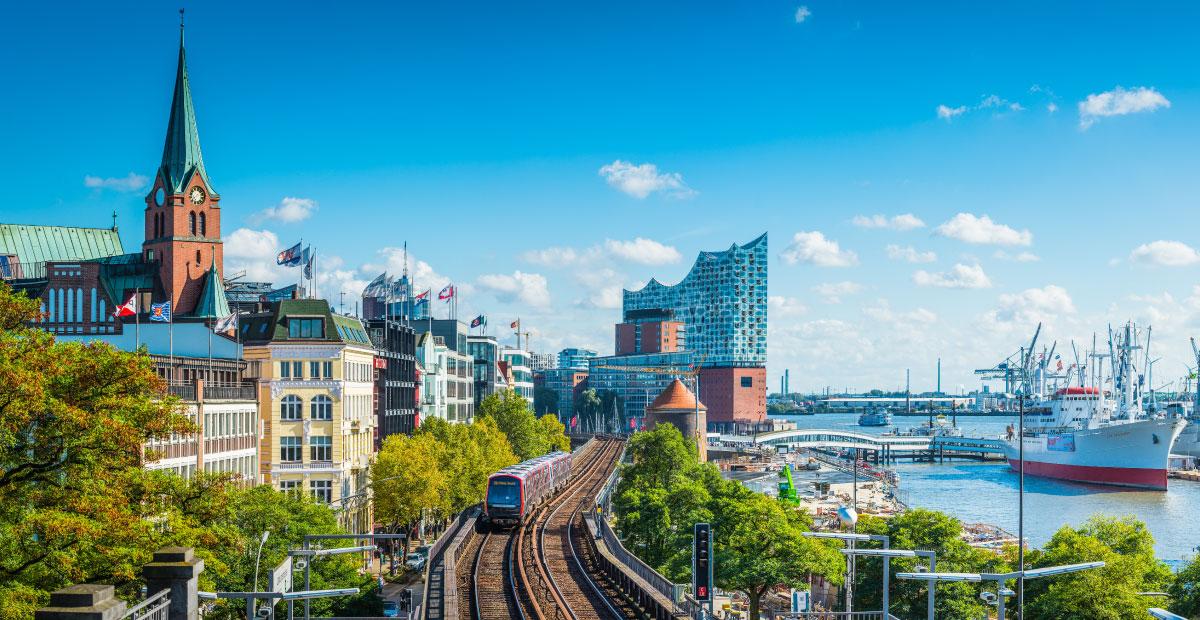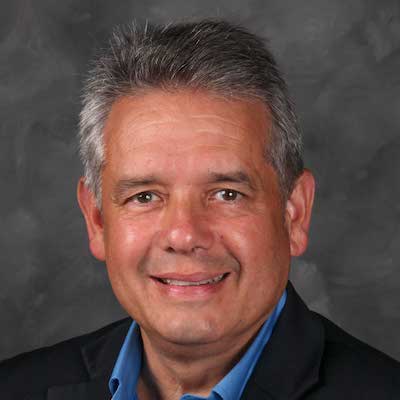Photo: Hamburg Convention Bureau - Andreas Vallbracht
The glistening reflection off the famed Elbphilharmonie concert hall on the banks of the River Elbe is not the only shining light coming out of Hamburg, Germany, these days.
With a new congress center scheduled to open in 2020, increased hotel rooms coming online, excellent public transportation, a walkable city and a mindset focused on innovation, Germany’s second-largest city is on a mission to raise its profile as a top-tier meeting and event destination, a revolution of sorts that would make their adopted sons, The Beatles, proud.
“I am quite impressed with what I see happening in the city of Hamburg,” says Matthias Schultze, managing director of the German Convention Bureau. “We’ve always known of the inspiration from Hamburg, but what we are seeing there now is only going to strengthen both the city and Germany as a destination for all types of congresses.”
The city, with fewer than 2 million inhabitants and home to one of Europe’s biggest ports, has gained a reputation for its focus on industry clusters, smart answers to public transportation and infrastructure and technology—all factors to support a vibrant meeting and event community.
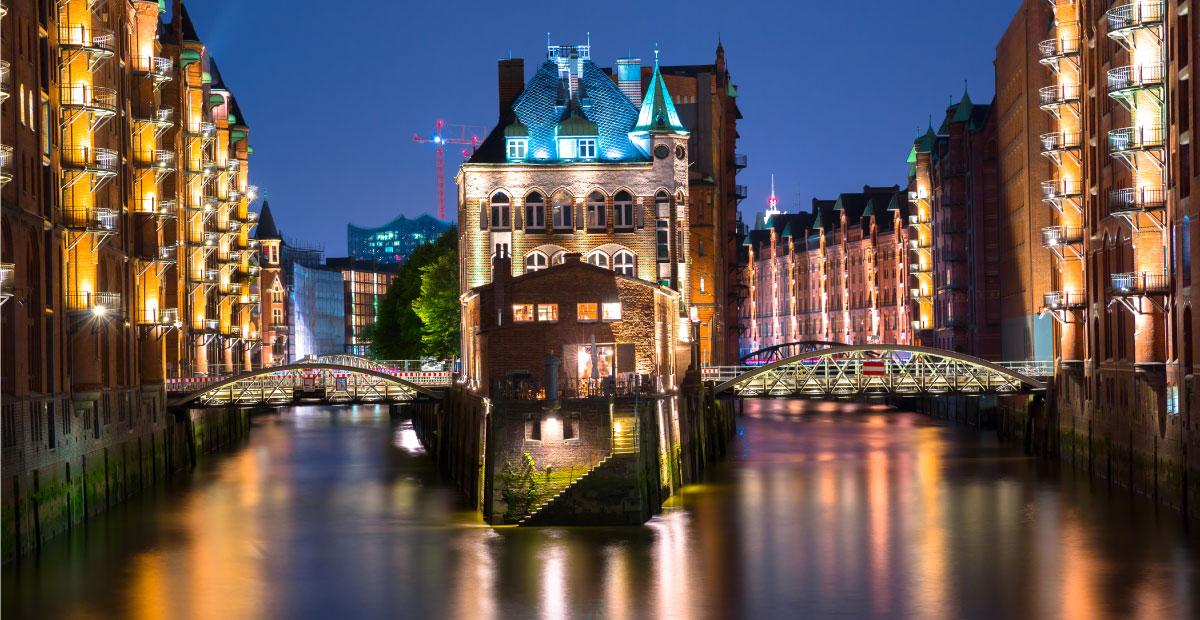
Hamburg, though, lacked name recognition when it came to the big players for meetings in Europe. Hamburg could not compete with cities such as London, Barcelona, Berlin, Amsterdam, Paris, Prague and others when it came to attracting meetings business.
“For a non-capital city it is always difficult to compete with the European capitals, but I truly believe that Hamburg is a very exciting place to be at the moment,” says Nele Aumann (MPI Germany Chapter), who took over as head of the Hamburg Convention Bureau’s conventions department about a year ago. “We’re here to display Hamburg as a city of innovation. We like to call it ‘Future Hamburg.’
“Hamburg has long been considered a hidden gem but was not not very well known overseas and not always on the agenda for international meeting planners. But now, Hamburg is a city of transformation where it has a very strong, forward-driven spirit taking place.”
A recent MICE market study revealed that about 3 million overnight stays in Hamburg are MICE related, or about 25 percent of the total. Of that number, 20 percent are international visitors.
The top business events have been focused on financial services, chemistry and pharmacy, medicine and medical technology and logistics and transportation.
But to compete for more business and keep the momentum going, the city knew it had to do more. Let’s start with hotel space. The city has 347 hotels with nearly 61,500 guest rooms—with plans to add 2,743 more rooms this year.
According to the 2018 Global Meetings and Events Forecast from American Express, Hamburg ranked No. 2 in the number of hotel openings in Europe with 22, trailing London (27) but ahead of Munich (16).
“We’re continuously adding new rooms to the portfolio of Hamburg,” Aumann says. “In the next few years we will add nearly 2,000 rooms to the city per year.”
Then there is Congress Center Hamburg (CCH), scheduled to open in the fall of 2020. First opened in 1973, city officials announced in 2014 a major renovation and expansion of the center located next to the park Planten un Blomen (Plants and Flowers) in the heart of the city. Work began in 2017, and CCH will eventually offer more than 129,000 square feet of flexible space, an equal amount of foyer space and 12,000 seats in up to 50 halls and rooms. When complete, the center will be the biggest venue in Hamburg for meetings and events.
“With the new CCH, a new congress age will begin in Hamburg,” Aumann says. “The opening will be a milestone for Hamburg as a congress destination and the building will radiate internationally for the destination. In addition, we’ll be more broadly positioned to offer services. A building like the new CCH is a nucleus in which knowledge is generated and exchanged. This will also benefit the city’s scientific and economic sectors and will bring Hamburg forward in its entirety.”
The center also lured an established meeting and event industry leader, Heike Mahmoud, to take over as chief operating officer. Mahmoud spent nearly 16 years at visitBerlin, serving as director for the convention office in Germany’s No. 1 destination for conferences, conventions, events and incentives, and, prior to that, was at Estrel Berlin, a renowned conference and congress hotel. She’s also been an active meeting industry leader, including with the MPI Germany Chapter. Her hiring was viewed as a coup for CCH.
“Many people have asked me why I would come here,” she says. “I tell them, ‘Why wouldn’t I?’ This was a very special opportunity. To be part of what is happening here at CCH and here in this city is quite exciting.
“Right now, there is not quite so much to see, but come back when we’re open and you will see what I think will be one of the most impressive conference centers in the world.”
What makes Hamburg special, though, is that combination of history and innovation. Music is an ideal example. The Beatles spent many a hard day’s night in Hamburg singing in clubs in the Reeperbahn district for more hours than in their hometown of Liverpool. They actually cut their first record in Hamburg as the Beat Boys in 1961.
The importance of music now is seen in the Elbphilharmonie concert hall, an iconic structure that some argue rivals what the Sydney Opera House did for Australia. Opened in 2017, the glass construction resembles either a hoisted sail or wave, a tribute to the city’s history.
“We’re very excited for the Elbphilharmonie to have opened,” Aumann says. “It is far more than an opera house; it really has become Hamburg’s international landmark. It really gave us a profile internationally with this beautiful building. It’s far more than just a venue. It’s actually a great statement the city of Hamburg made and it shows the great combination that the city has between tradition and innovation.”
The building is built on a basement that is part of the UNESCO World Heritage site.
“It’s very old and solid, which represents our values, but on top of that you have a beautiful looking building which displays the spirit Hamburg has to be forward moving into the future,” Aumann says.
The Elbphilharmonie’s proximity to the water and its design also pays homage to the city’s love of water.
“We like to call it the liquid city as well,” Aumann says. “You have the River Elbe where the Harbor of Hamburg is based, which is the second largest in Europe. Then you have a large inner-city lake with its great activities for sailing, rowing. You have great venues right by the waterfront. You have a lot of incentive opportunities and you’ll see how Hamburg is a very livable city where people ride their bikes and spend their time outside because it’s a city of short distances.”
One minute someone can be listening to the philharmonic orchestra at the Elbphilharmonie, and shortly thereafter bike around the Alster lakes. A popular activity, both for leisure and groups, is sailing around the lakes to see homes, restaurants and other buildings along the lakefront, including some venues that hosted politicians during the G20 summit in 2017. If you’re lucky, your tour guide can share tales of his tongue-in-cheek observations of certain unnamed world leaders. But that’s another story.
“We are a very versatile city,” Aumann says. “You have a very green and livable city. We have beautiful venues whether it’s rooftops which oversee the harbor, or you can have great barbecues right by the waterfront or beach-style, casual events. But we’ll also have Michelin-star restaurants so there’s really a great mix of things you can do.”
Aumann is proud that Hamburg was one of six finalists for the 2018 European Innovation Capital award. While the city did not win the award, she believes it shows how Hamburg is innovating.
“First of all, how do we live in a digitized world? How can we improve the quality of life for citizens and how can we create a sustainable future for all of us?” she says. “I think that’s where Hamburg is taking a leading role in answering those questions—so what does it mean for a meeting planner? When you step into a meeting in Hamburg, you’ll find great networks and you’ll find great think tanks, great industries and cluster initiatives. We really believe there is a strong mutual value creation when you bring a meeting to Hamburg.
“We like to showcase what we have in terms of new industries and trends. But we, as a convention bureau, connect the organizer with the knowledge which is in Hamburg, so I guess that’s why we call ourselves a city of innovation because it’s far more than just logistics, but we really want to add value and content, local knowledge to the meeting when you bring it to Hamburg.”
There are areas such as Reeperbahn, the well-known entertainment district where The Beatles actually started their career. There is live music and great entertainment along with historic areas, old warehouses, beautiful brick buildings and venues where meeting attendees can do tea and coffee tastings or make their own chocolate.
“I really think there are innovative meetings taking place and Hamburg is really good at disrupting in a certain way,” she says. “I think disruption is good in our meeting industry because we need something different.”
Aumann cites examples of meetings that have taken place or will take place in Hamburg:
-
Online Marketing Rockstars, which brings 30,000 delegates from all over the world to the fairgrounds in the city center. “It’s really a great combination of a festival and a meeting. You have the digital marketing leaders of our industry meeting with musicians. You’ll have concerts in the coffee breaks. You’ll have a great combination of meeting, knowledge and network.”
-
The Next conference takes a full district of Reeperbahn. “They have theaters as a plenary and they have clubs as breakout sessions. It’s just a creative way of doing meetings in Hamburg and that’s also because of the local expertise.”
-
Rotary International Convention, which will bring close to 30,000 people to Hamburg. “This shows that Hamburg is able to host large-scale and high-profile events.”
It’s clear that Hamburg is gaining traction as a meeting destination. As The Beatles would say, time to “get back” to Hamburg.
Hotels in Hamburg
The Grand Elysée Hamburg, Germany’s largest five-star private hotel, features more than 45,000 square feet of meeting space in 30 rooms. The hotel has 511 guest rooms including 17 suites and four restaurants. The hotel was opened by entrepreneur Eugen Block, who began his career selling steaks at his Block House restaurants
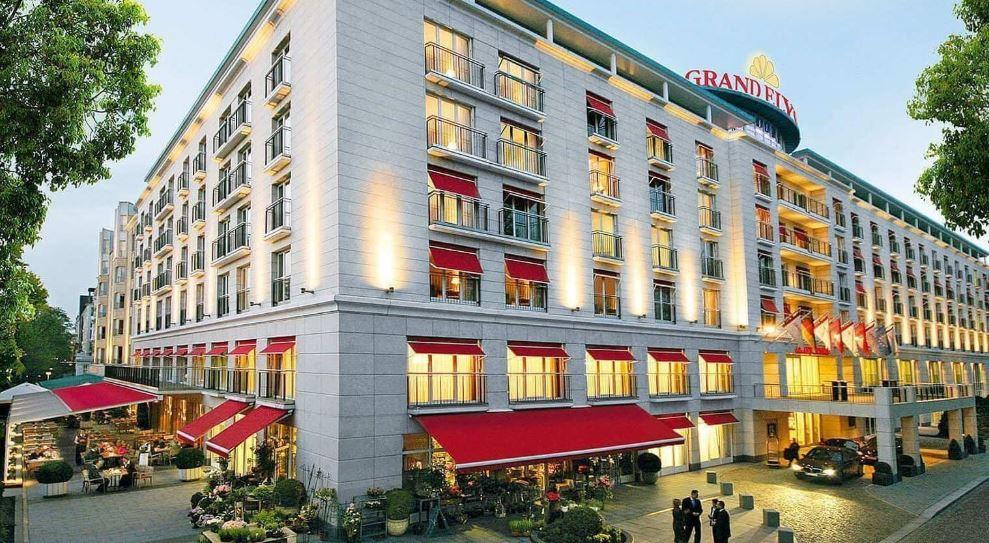
Photo source: Grand Elysée Hamburg
A recent addition is The Fontenay Hamburg, a luxury property that sits on the shores of Lake Alster. The landscaped patio and the nearly 300-foot-high atrium are impressive. The property features 114 guest rooms and 16 suites, along with nearly 6,000 square feet of meeting space. Another impressive feature is the restaurant and bar on the top floors, which offer spectacular panoramic views of the city and the lake.
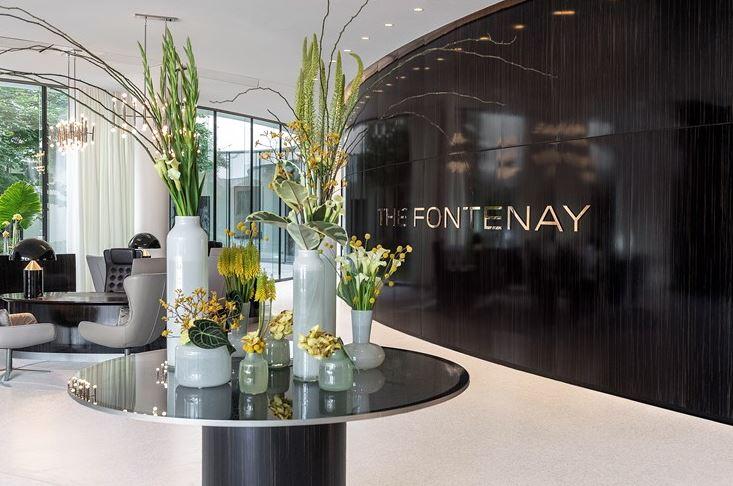
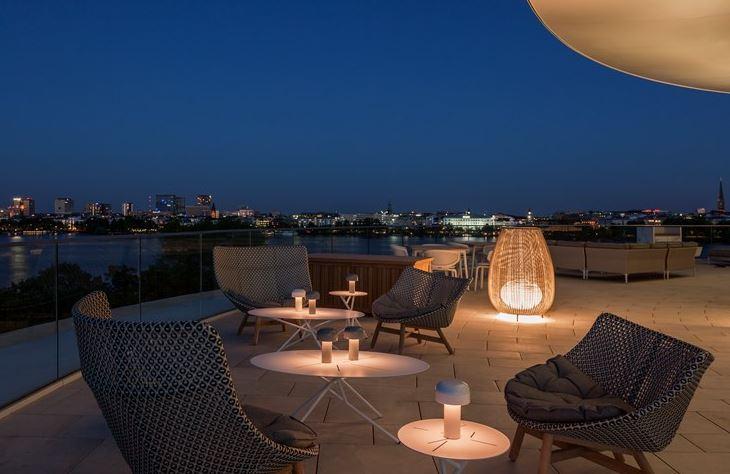
Photo source: The Fontenay Hamburg
To learn more about Hamburg, go to www.hamburg-convention.com.
Don’t Miss IMEX in Frankfurt
The Hamburg Convention Bureau will be at IMEX in Frankfurt as industry professionals gather for the worldwide exhibition for incentive travel, meetings and events at Messe Frankfurt, May 21-23. Expect education on key topics such as live events, experiential activities, women in leadership, mental wellbeing and robots to continue, along with new topics such as leveraging creativity, collaboration, technology and sustainability.
EduMonday takes place May 20, 2019. MPI will be presenting education throughout IMEX. To learn more, visit mpi.org/events/imex-frankfurt.

